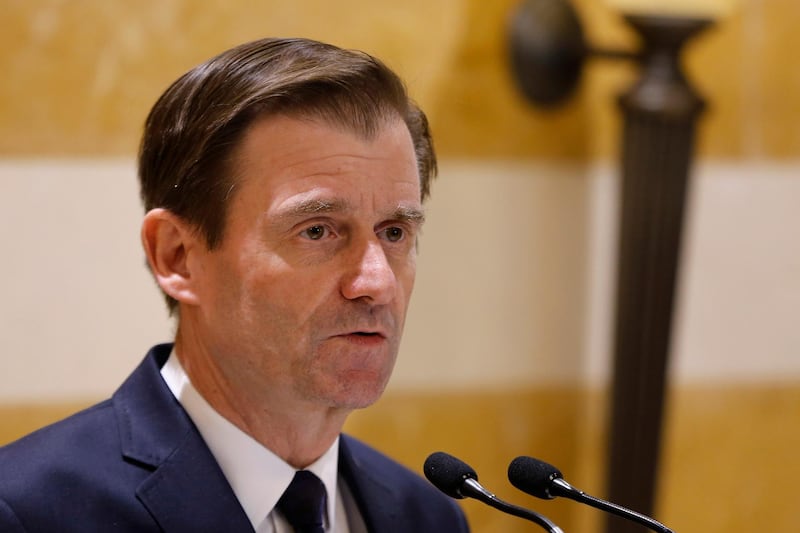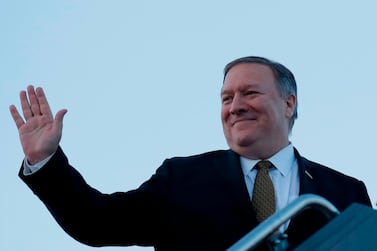The US Central Command is hosting a two-day meeting for defence chiefs of GCC nations, and Egypt and Jordan, to try to improve co-ordination and counter Iran.
Eight chairmen of the joint chiefs of staff from the attending states and the US, plus a defence representative from the GCC, met in Tampa, Florida.
Topics for the meeting at MacDill Air Force Base include regional co-operation and stability, the war on ISIS, missile defence and maritime operations.
Last month, Saudi Arabia hosted a GCC defence training exercise. The previous meeting for the GCC, Jordan, Egypt and the US was hosted by Kuwait in September.
On Monday, US Undersecretary of State for Political Affairs David Hale attended an event with the group.
Mr Hale was scheduled to address “the challenges in Syria, Yemen and Libya, as well as countering the Iranian regime’s destabilising activities and shaping the Middle East Strategic Alliance,” the State Department said.
Mesa, also referred to as the Arab Nato, is a security bloc the Trump administration has been hoping to put together since May 2017.
The alliance is expected to include the US, the GCC, Egypt and Jordan, and would tackle issues collectively, including defence, security, energy and economic policies.
But differences among the members derailed its launch and forced Washington to reschedule three summits.
The Florida meeting follows a recent gathering in Washington for Mesa representatives and signals an increase in momentum towards launching the alliance.
Yasmine Farouk, a fellow at the Carnegie Endowment for International Peace, said the Tampa meeting was another sign that the Trump administration was “still pursuing Mesa actively and refuses to give up on the idea despite recent hurdles”.
“The fact that the Arab countries are still attending means that they are actually responsive to the administration’s determination to try to implement this project,” Ms Farouk said.
“The US is trying to push Arab countries to be more involved and more active, and some of these countries are now showing more initiative.”
But Ms Farouk said the lack of consensus in defining threats was one of the unresolved issues derailing the formation.
Diplomatic sources say there is no agreement in defining the militant, Iranian and terrorism threats.
Other issues that have surfaced in the past are defence relations with Russia and China, and energy security.
The diplomatic sources said Riyadh would be hosting another meeting for assistant ministers of Mesa members next month to follow up on Washington's meeting in February.






